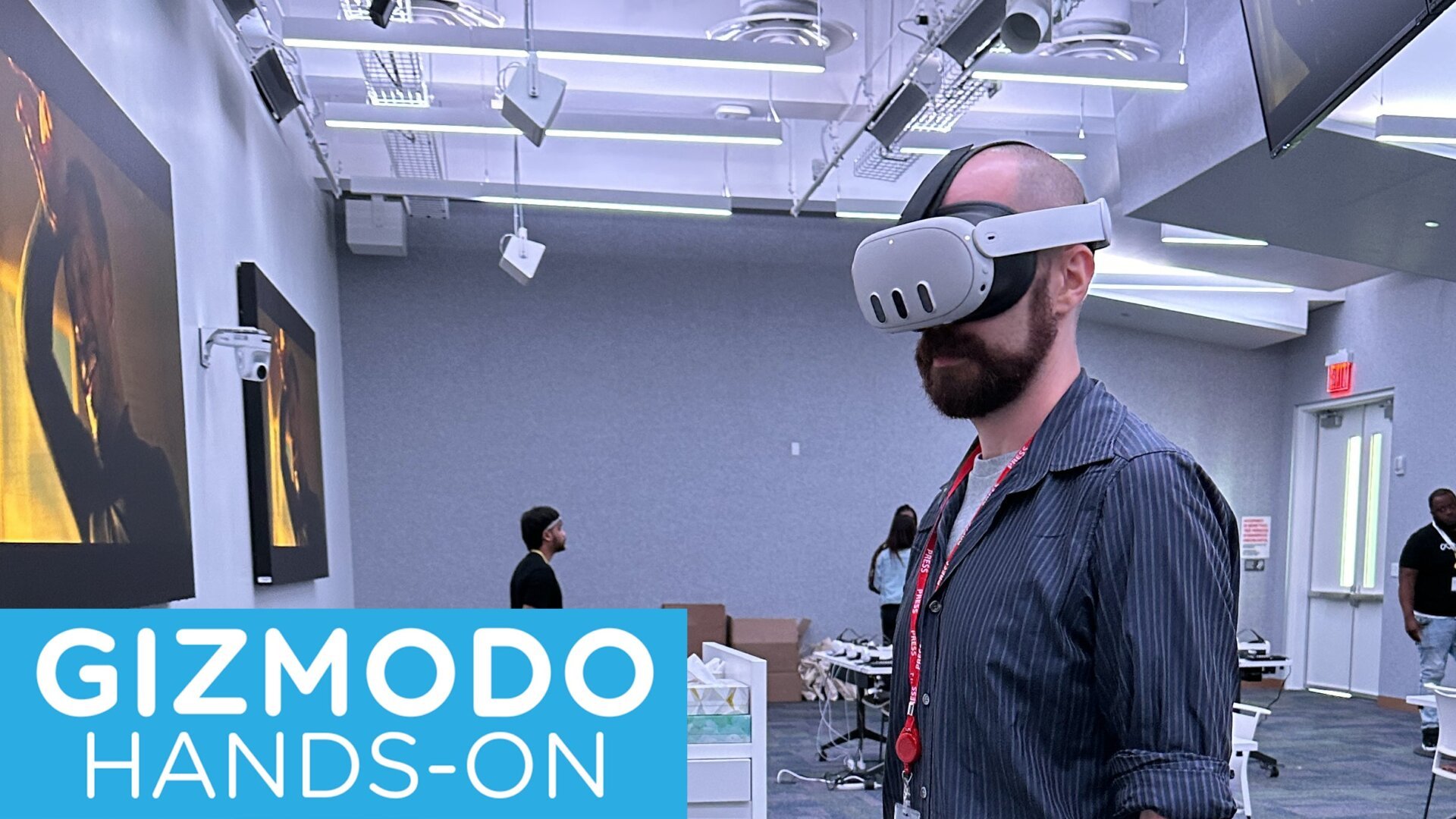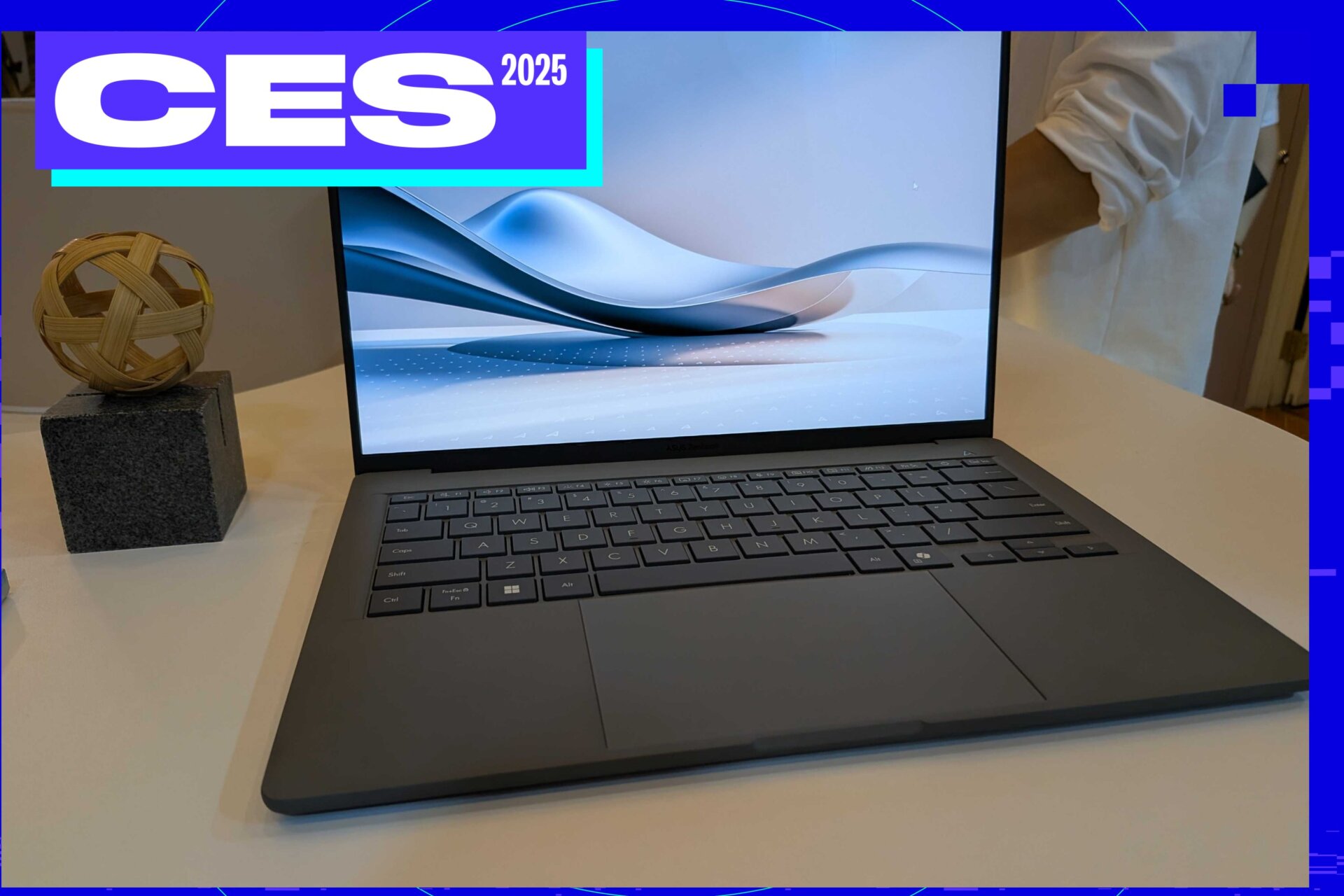The Meta Quest 3 hasn’t enjoyed much time in the spotlight this year, and that probably won’t change with the headset’s most recent hardware and app updates. But let’s cast a more intense glow on the Meta Quest anyway because there’s something else happening to the Quest ecosystem if you’ve been paying attention. The folks in charge of Quest’s software told Gizmodo that their big hopes for VR rest on making something open, varied, and—you know—like Android.
During a short sit-down interview, Meta’s director of metaverse entertainment content, Sarah Malkin, told me the current plan with Quest is “more.” More apps, more experiences, and—hell—why not more headsets that Meta doesn’t have to make itself? In April, Meta announced it was releasing Horizon OS as its own VR ecosystem and that other manufacturers like Lenovo and Asus were already making their headsets supporting Meta’s new OS.
Malkin: We’re happy that there’s more to have joined us [in VR, like Apple], but we feel really confident that we’re the primary place people would want to build, because we’re reaching the most people with the most variety.
Gizmodo: That’s customer choice. When you have multiple, different companies all with the same OS, that’s why the Android model works.
Malkin: Yeah, exactly. That’s right. Yeah.
“What we’re continuing to put a lot of resources and effort behind providing more and more variety and breadth and numbers of experiences,” Malkin said. “We feel really confident that we’re the primary place people would want to build because we’re reaching the most people with the most variety.”
Meta’s “metaverse” ambitions haven’t had a strong leg to stand on for years. The idea of VR spaces was a pretty vacuous vision practically since Meta changed its name from Facebook. Now, with big tech’s obsession with AI at a peak, Meta’s Quest headsets have become far more open as of late. Game Pass and SteamVR are now easy to access natively on Quest through separate apps. The game library is bigger than ever on Quest, and the basic UI is about settled.
So where is that “more” going to come from? Well, it has to be from third-party app makers. So far, it has a lead in that space thanks to the lifespan of Oculus and Quest, plus its relatively low price compared to the competition, especially the Apple Vision Pro. Simply put, it needs more stuff to do on Quest. The sooner, the better.
What’s New on Meta Quest 3, and Does it Really Change Anything?

Meta’s latest updates to the Horizon environment aren’t very dramatic. They include a few minor feature updates, such as finally watching Netflix in the browser, rather than with the older app that maxed out at 480p. The recently announced travel mode is now enabled as well. The feature makes connecting to airplane WiFi easier and reduces the jitter from turbulence, all while you kick back and try to ignore the kid behind you kicking the back of your seat. Travel mode is available under Experimental features under the headset’s quick settings.
Otherwise, there are a few new modes to some existing apps. The Angry Birds VR: Isle of Pigs has a mixed reality slingshot mode. Beat Saber’s OST 7 with a few returning and new artist tracks. There’s also a new Daft Punk-inspired neon-lit environment called “Collider.” Fitness app Supernatural adds mixed reality modes that let your coach hang out in your living room rather than in a vague, cloud-filled void.
Meta invited me to try out some of these new features, even as limited as they are. The Meta Quest 3 started as a strong, wireless VR setup with some impressive AR capabilities, and despite some hiccups in the months since release, it has improved. Not “a whole new dimension” better, but a better-supported, cleaner experience overall.
Supernatural’s VR exercise is a far better workout than your average Beat Saber session. Its body and hand tracking are very good, and the exercises emphasize constantly moving with your entire body rather than just slapping your hands to the side. I have done a very minimal amount of boxing, and even a light exercise will start the sweat going, enough to cause the notorious ring of headset sweat around the faceplate. It was the most engrossing demo, but it still felt old hat. Anybody expecting something truly new from this latest round of updates may still need to wait.

At the same time, Meta started rolling out the v66 update to fix some passthrough distortion and improve the hand-tracking capabilities of the Quest 3’s MR. This also includes a new wrist-activated “wrist button” for accessing the Quest menus. This should work inside both games and apps.
None of the Quests I used in Meta’s demos were running v66, and our own Quest 3s have yet to receive the new update. The Quests I used ran well, except for one odd glitch in Quest 3’s main menu. I have used the $3,500 Apple Vision Pro and the $500 Quest 3, and in my mind, Apple’s headset is undoubtedly better looking with more accurate eye and hand tracking, but not seven times the price more accurate.
What Needs to Come Next for Quest to Win VR

That being said, VR workouts will not be everyone’s cup of tea. Neither is watching Netflix while wearing a VR headset. None of the demos felt new or earth-shattering but more of a reminder that the Quest 3 hardware is improving and Meta is still invested in VR.
Yes, that’s part of it, but there’s something else to say about the latest happenings with Meta Quest. Horizon OS shows Meta is calling out for partnerships. We know Microsoft and Meta are working together to some capacity, as evidenced by the black and green Xbox-branded Quest 3. Perhaps we’ll learn more about that on Sunday during the Xbox Games Showcase on June 9.
Apple is expected to announce a big visionOS update for its Vision Pro next week at WWDC 2024. It will be pretty important, considering the hype surrounding Apple’s next big thing has tanked in the months since its release. Supply chain analyst Ming Chi Quo reported Wednesday that demand for the Apple headset declined rapidly after release and has not improved. Meta CEO Mark Zuckerberg tried to sucker punch Apple earlier this year by claiming his VR tech was better than Apple’s at a fraction of the cost, but in many ways, Meta needs Apple to be in the space. Malkin said that Meta wants to make lighter headsets with better battery life that are far easier to bring around with you or interact with in a social context. That’s exactly what Apple wants, too, even though the Vision Pro is still a little heavier than the Quest 3.
Meta needs Apple to exist so it can do what Google did all those years ago and fight back against the Cupertino tech giant with a far more open platform. Apple could still establish a foothold thanks to its walled garden ecosystem and dedicated fanbase, though it will need a new headset sooner rather than later. Meta, on the other hand, needs to keep making HorizonOS better. Just look how PlayStation followed up with access to PC on the VR2 only after Meta let users access their Game Pass and SteamVR titles through its wireless headset. An open OS and consumer product choice is better in the long run. So, as the company continuesspending billions of dollars (Meta reported $3.85 billion in losses for its Reality Labs division last quarter) on its metaverse ambitions, it will hopefully remember that.














